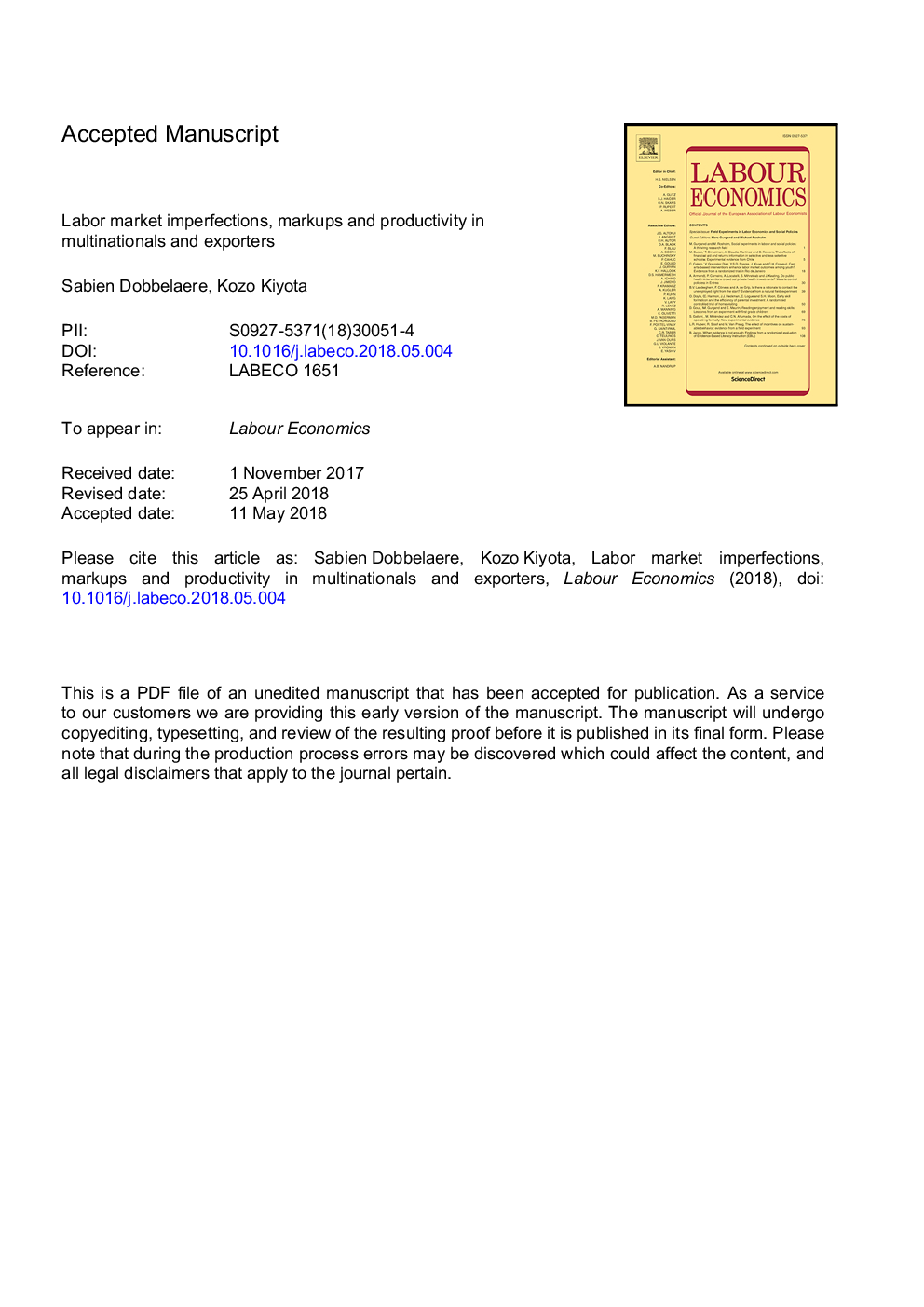| Article ID | Journal | Published Year | Pages | File Type |
|---|---|---|---|---|
| 8948035 | Labour Economics | 2018 | 44 Pages |
Abstract
This paper examines the links between a firm's internationalization status and the type and degree of market imperfections in product and labor markets. We develop a framework for modelling heterogeneity across firms in terms of (i) product market power (price-cost markups), (ii) labor market imperfections (workers' bargaining power during worker-firm negotiations or a firm's degree of wage-setting power) and (iii) revenue productivity. We apply this framework to analyze whether the pricing behavior of firms in product and labor markets differs across firms that engage in different forms of internationalization using an unbalanced panel of 7,458 manufacturing firms over the period 1994-2012 in Japan. Engagement in international activities is found to matter for determining not only the type of imperfections in product and labor markets but also the degree of imperfections. Clear differences in behavior between firms that serve the foreign market either through exporting or through FDI are observed. Exporters are more likely to be characterized by imperfect competition in the product market whereas the opposite holds for multinationals. Exporters are more likely to share rents based on the bargaining power of workers whereas a firm's wage-setting power seems to generate wage dispersion across firms with foreign subsidiaries.
Related Topics
Social Sciences and Humanities
Economics, Econometrics and Finance
Economics and Econometrics
Authors
Sabien Dobbelaere, Kozo Kiyota,
